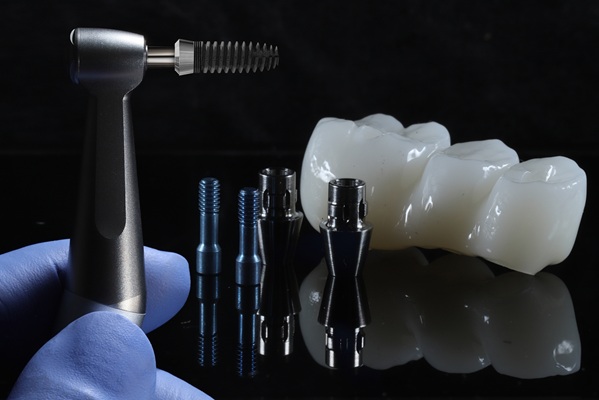Types of Dental Bone Grafts

Dental bone grafts restore structure and strength to the jawbone. Not only does this enhance the natural appearance of the face, but it can also create a strong foundation for dental implants. There are several types of dental bone grafts that an oral surgeon may recommend. Exploring the various types available can better prepare patients for their consultation appointment with an oral surgeon.
Types of dental bone grafts
An oral surgeon will assess the patient's jawbone and medical history when determining which dental bone graft type best suits their needs. Explore the four types below.
Autografts
Autografts are dental bone grafts sourced from another part of the patient’s body, such as the chin, jaw, or hip. These grafts are highly effective due to their compatibility with the patient’s body, which reduces the risk of rejection. Since they contain living cells, they also promote natural bone regeneration.
Allografts
Allografts are derived from human donors, usually donated to a bone bank. These grafts promote new bone growth while eliminating the need for an additional surgical site. Note that the donated bone undergoes rigorous processing and sterilization to ensure patient safety.
Xenografts
Xenografts use bone material sourced from animals — most commonly from cows (bovine) or pigs (porcine). Again, the dental bone graft is thoroughly processed to ensure it is biocompatible, sterile, and safe. Keep in mind that this type of graft is typically used as a scaffold to support new bone growth, making it ideal for larger grafting needs.
Synthetic bone grafts
Synthetic dental bone grafts are created using biocompatible materials, such as calcium phosphate or bioactive glass. They mimic natural bone and stimulate the body's ability to regenerate bone tissue. As such, they are a versatile and widely available option for patients seeking alternatives to natural bone sources.
Choosing the right type of dental bone graft
Choosing the right type of dental bone graft involves considering the patient's overall health, the extent and location of bone loss, and the procedure's specific goals. Medical conditions or medications may influence the choice, with some patients benefiting from graft materials that reduce the risk of rejection or infection, such as autografts. Severe bone loss may require more substantial grafting options, such as xenografts or synthetic materials, to rebuild the jawbone structure effectively. The procedure's purpose, whether to prepare for dental implants or repair periodontal damage, is also a key factor in the decision-making process.
What about patient preference?
Personal preferences can further impact the choice of dental bone graft material. Some patients may prefer autografts sourced from their own bodies, while others might opt for non-animal-derived or synthetic options. An oral surgeon will consider all these factors and provide personalized recommendations to ensure the most effective and successful treatment outcomes.
Schedule a consultation with an oral surgeon
A dental bone graft can improve oral health and function, especially for those preparing for permanent tooth replacements. Ask an oral surgeon about your options in a consultation. Contact our Bensenville team today to begin.
Request an appointment here: https://www.midwestoralcare.com or call Midwest Center for Dentistry and Implants at (630) 766-0115 for an appointment in our Bensenville office.
Check out what others are saying about our dental services on Google: Will I Need a Bone Graft for Dental Implants in Bensenville, IL.
Related Posts
Thinking about choosing implant-supported dentures to replace your missing teeth? This type of denture offers many benefits, which is why this denture choice has become so popular. However, properly caring for dentures supported by implants is necessary so they will last for many years.While there are many different types of denture choices to choose from,…
Whether you are about to book an appointment for tooth implants or you have just undergone the procedure, you probably want to learn proper aftercare to ensure healing and recovery. One of the questions that patients often ask is what and what not to eat after surgery. Although placing implants ensures that you have dental…
Root canal therapy is an effective way to restore infected teeth. However, like any procedure, there are cases where complications arise and the treated tooth may not heal as expected. It is important to know the signs of root canal failure so that you can get the tooth treated again as soon as possible. Addressing…
TMJ treatment from a general dentist fosters relief for individuals who experience jaw discomfort, clicking sounds, and restricted movement in the temporomandibular joints (TMJs). These joints, located on each side of the face, allow essential motions such as chewing and speaking. When the joint or surrounding muscles become inflamed, misaligned, or stressed, everyday tasks may…
